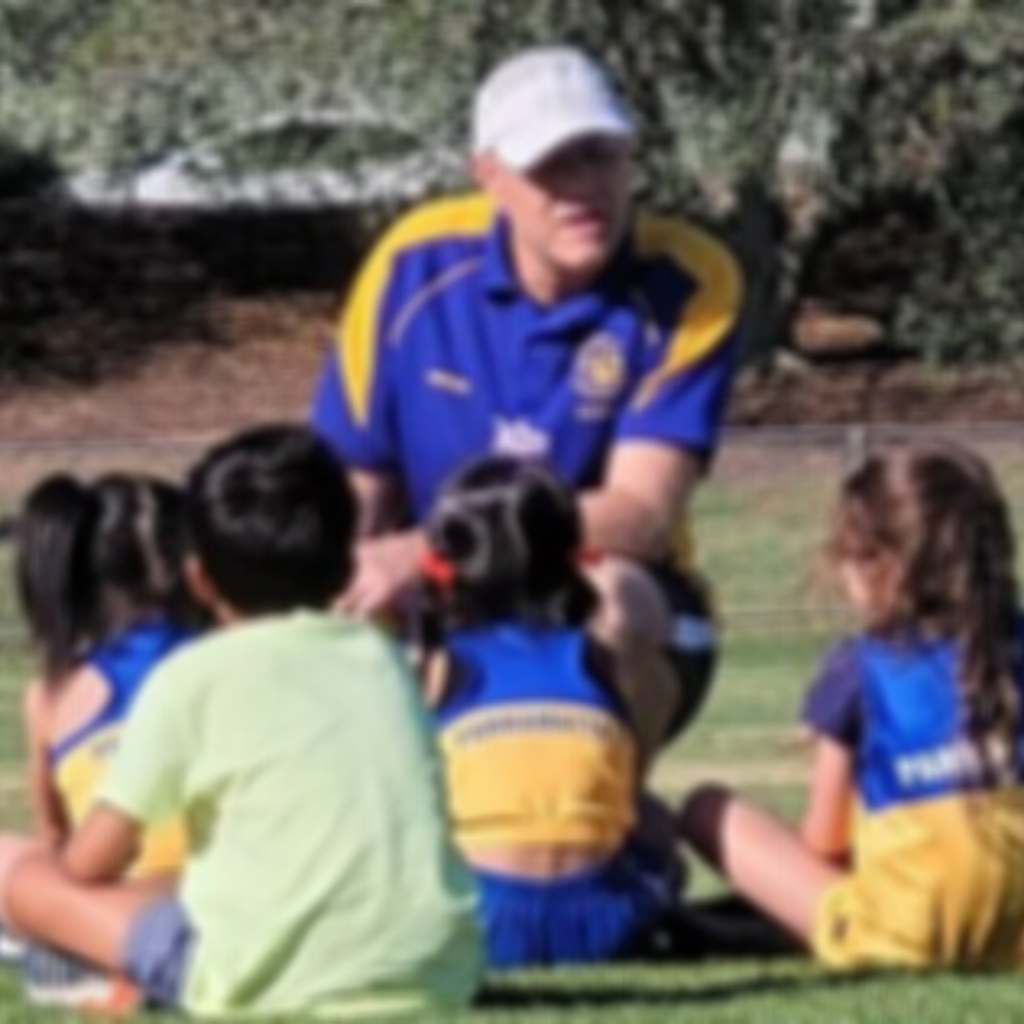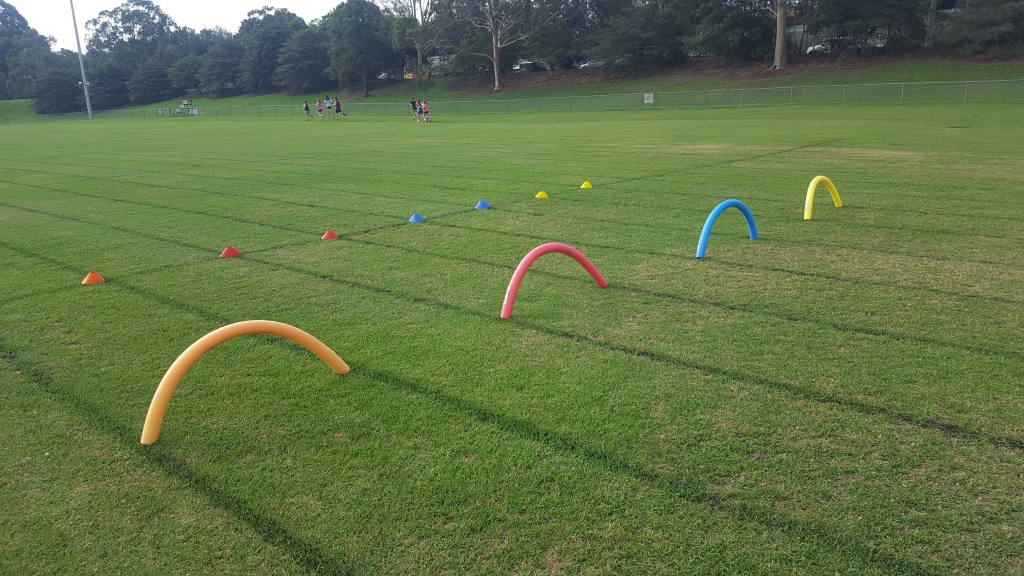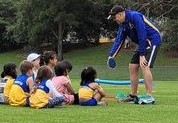The 25 Best Tips From ‘Coaching Young Athletes’ During 2021
Below are 25 of the best tips, tricks, thoughts, and ideas that appeared in articles posted on the Coaching Young Athletes blog during 2021.
1. Accept That A Coaching Session With Kids Often Won’t Pan Out The Way That You Expect
Many enter the world of coaching kids expecting that things will be neat and orderly; that well-planned sessions will progress in an orderly fashion. In reality, coaching kids is often messy and chaotic. Things usually don’t just fall into place. Surprises and the unexpected will happen. It’s a harder gig than many anticipate. Accepting and being prepared for this reality is one of the keys to not just surviving, but thriving as a coach of young athletes.
2. Roll With It
It’s ok to be spontaneous. A session plan is important. But be prepared to deviate from it. Sometimes you will have to, and sometimes it is best to. Don’t just doggedly stick to what you wrote. Ploughing ahead when the kids just aren’t responding positively to an activity needs a swift repair and refocus. Alternatively, if an activity is going well, capitalise on it and extend upon it. Coaches need to be flexible and ready to adapt.
3. Don’t Blame The Kids For Not Understanding You
Take on the responsibility of ensuring everyone understands what you would like them to do. Visual demonstrations and walk-throughs are well worth considering. While seemingly soaking up valuable session time, they are more likely to ultimately save you time later on.
4. Build “Choice Of Challenge” Into Your Sessions
The larger the group, the more levels of capability you are likely to encounter. Some kids will pick things up quickly and might become bored. Some will struggle and might become frustrated or dispirited. Think of it like indoor rock climbing where participants may be able to choose from a variety of colour-coded difficulty levels.
5. After a session, always ask the kids what they most enjoyed
Give everyone a chance to speak. Take note and learn, and put it into practice the next time that you coach.

6. Measure your coaching success by more than just competitive performance improvement and results
Don’t be disappointed if your coaching impact is not immediately observable via increases in performance or results. Coaches are not magicians. Be patient, encouraging, and understanding. Also, be encouraged that even though you may not notice tangible improvements, kids are often laying the foundations for, and building towards, a breakthrough.
7. Follow A Clear Coaching Philosophy
Coach with a clearly thought-out and articulated coaching philosophy. It will give you a strong coaching identity and a powerful sense of purpose, which will drive what you deliver. It provides you something into which you can anchor your coaching practice, and onto which you can fall back for guidance and direction. Write it down. Articulating it in this way requires you to think deeply and clarify your thoughts. It also means that you can display it somewhere prominent and refer to it regularly, keeping it front-and-centre of your coaching consciousness.
8. Write Down Your Reflections
Your learning will be limited if you don’t reflect. A coaching experience isn’t complete until you have done so.
Any type of reflection is better than none, but to be effective, self-reflection has to be more than just a few random thoughts on the way home. Ideally, you want to go deeper than this and have some type of record of your musings that you can later return to.
The real power comes from formally recording your thoughts and using them to drive action for your next coaching effort. Without recording your thoughts, examining them, and formulating a response, it is unlikely that any real change for the better will occur. Such records are also a marvellous resource to keep and fascinating to look back over.
Make yourself write some reflective thoughts down as soon as possible after you have coached.
9. Look Back To Help You Move Forward
When you look back to learn, you are tapping into an enormous cache of experiences. In doing so, You are often reminded of learnings, games, activities and ideas that you otherwise would have forgotten.
The key is to have a robust process for recording, storing, and retrieving this material. Establish a method of reliably recording the content and learnings from your sessions, and cataloging ideas that emerge for future sessions. You will also need some type of routine for consulting these recordings to ensure the golden nuggets that they contain are not lost.
10. Use Poor Sessions As Opportunities For Improvement
All coaches have sessions that they are not happy with.
A bad session is often a stronger catalyst for deep reflection than any successful session. And deep reflection is the source of real coaching improvements.
As long as you don’t let a bad session entirely derail your coaching confidence, poor sessions are opportunities for improvement. It can give you the impetus to examine what went wrong and what you can do better next time. The key is being prepared to take responsibility and not lay the blame elsewhere. It’s all about being accountable.
It’s also about accepting that things won’t go well all of the time and having a strategy for moving forward.
11. Don’t Treat Limited Resources As A Burden
State-of-the-art facilities are nice, and not having some things can be limiting, but it can also be expansive. You need to be creative and learn to adapt. Forced creativity often leads to a discovery that may not have emerged if we are left in our comfort zone. If, for example, you have a session confined indoors due to bad weather, and not able to access your regular space, facilities, or equipment, you may have had to debut some wonderful new material that otherwise would not have seen the light of day.
Sometimes, having access to limited resources can be a bonus rather than a burden when it comes to learning to be creative and flexible.
12. Embrace The Unexpected
Having to survive surprises can result in you inventing some of your best stuff.
It is not unusual to be faced with groups that are bigger or smaller than expected, or group members are running late, or the weather changes, or you have forgotten to pack a key piece of equipment. All of these things may necessitate quickly changing your plan and sometimes creating new adaptions of existing activities or even brand new additions to your coaching repertoire, some of which will survive, or at least influence your coaching going forward.
13. Let The Kids Lead
Whether pre-planned or not, take the back seat for a while and let the kids lead.
It is worth planning athlete-led situations into your sessions, but they can also sometimes arise unexpectedly. If you sense the kids want input, don’t push back, panic, or grip more tightly to your control. Be alert to opportunities to stand back, pass the reins over, and learn. Kids can be more creative than adults. The challenge here is feeling OK with relinquishing some control while still providing a gentle guiding (or steadying!) hand if needed.
14. Always Face Your Group Away From The Sun
It is preferable that YOU face the sun. Otherwise, the kids’ need to squint and shield their eyes will outweigh their ability to keep focused on you. Note where the sun is and position yourself and any activities so that it doesn’t become a distraction. If you can’t turn them entirely away from the sun, one or two steps this way or that, or even just squatting down in an attempt to change the kids’ angle of vision away from the glare can improve the situation.

15. Block Out Background Distractions
Try to position your group so that any potential background distractions are not within the kids’ field of vision. A background distraction can be anything from a busy road to other groups; in fact anything other than what is going on in front of them.
In a busy environment, sometimes background distractions are unavoidable. In this case, you need to work to be more interesting than anything else happening in the vicinity and/or reconsider the frequency, duration, and mode of directions and instruction that you can deliver in those conditions.
16. Provide Kids An Incentive To Organise Themselves Quickly
Try turning organisational activities into a game, challenge, or fun competition.
This can be as simple as the kids scoring points for their team for being organised quickly. Keep a cumulative total throughout a session.
17. Use “Countdowns” To Speed Up Transitions
“Count Downs” are when the coach challenges a group of kids to organise themselves within a time limit or to beat a certain time. It is a wonderful way to disguise a group management strategy behind a challenge that the kids enjoy.
18. Colour-Coordinate Activities
“Dress up” an activity by colour-coordinating the equipment being used during the activity. E.g. The blue team stands behind blue markers, and uses a blue hurdle, the red team uses red markers and hurdle, etc.

19. Start Sessions With Activities That Require Minimal Explanation
Begin sessions with games that require minimal talking from the coach. Save activities that require more explanation for later in the session once the kids’ have had the chance to expel some of that initial energy and excitement.
20. Don’t Pursue Session Momentum By Short-Cutting Your Explanations
In trying to get the kids moving as quickly as possible, it can be tempting to shortcut explanations of activities. This will inevitably result in the kids not fully understanding or misinterpreting what is required. This in turn often means pausing the session to put everything back on track. Ironically, by trying to save time, you end up wasting it.
21. Prioritise Teaching Over The Tape Measure
A need to constantly measure athlete performances can cause a coach to become tied up in timing and tape measures, leaves no time for teaching. Teaching should always trump the tape measure with kids.
22. Use Games To Encourage Effort
Sometimes telling or cueing kids to run fast is not enough. They need to learn the concept by experiencing it.
Enter here sprinting games and fun challenges, which often hold that extra incentive to move quickly.
Add a variety of sprinting games to your coaching toolbox.
23. Create Interesting Cues, Analogies & Scenarios When Teaching Skills
Implant fun and innovative images in kids’ imaginations to help them learn. For example, if teaching sprinting, get the kids to mimic a speedy animal or object that they relate to (cheetah or speed boat?) or a scene or scenario that motivates fast movement. Long jumping examples may include the kids pretending that they are an aircraft building up speed on a runway for take-off or they are being chased by a monster that can only be escaped by jumping far out into a “lake” (long jump pit). Activities enveloped in a story that utlise the kids’ imagination should feature prominently during a coaching session. They capture and draw the kids in, and guarantee that the “smiles per hour” count will be high.
24. Be Aware That Some Cues Will Work With Some Kids But Not Others
A cue or image can help one child and possibly hinder another. Be prepared to test and trial your ideas and use a variety of approaches.
25. You Can Save A Session
Keep calm and maintain a cool head when things start to go off the rails during a session. A session can be turned around by reassessing your expectations and adapting to the situation.
Which tip is your favourite?
I would love to hear which of the tips is your favourite. What resonates with you? Let me know by leaving a comment/reply or by using the contact details below.
Further reading
25 Tips From 2020 That Will Make You A Better Coach
25 Tips From 2019 That Will Make You A Better Coach
10 Tips From 2018 That Will Make You A Better Coach
If this post helped you please take a moment to help others by sharing it on social media. If you want to learn more I encourage you to leave questions and comments or contact me directly.
Darren Wensor is a sports development professional, coach educator, specialist coach of young athletes, and founder of the blog coachingyoungathletes.com. Learn more about him here and connect with him on Twitter, Facebook, Linkedin, or via email. Check out Coaching Young Athletes on YouTube, the Coaching Young Athletes podcast, and the Coaching Young Athletes E-Book Series.


